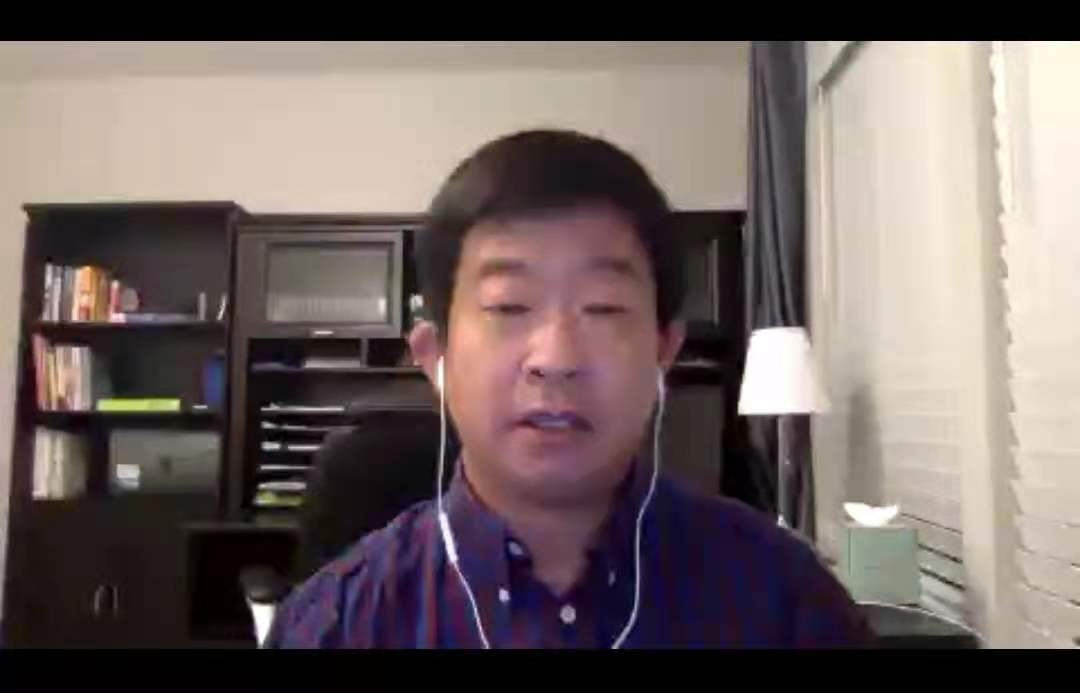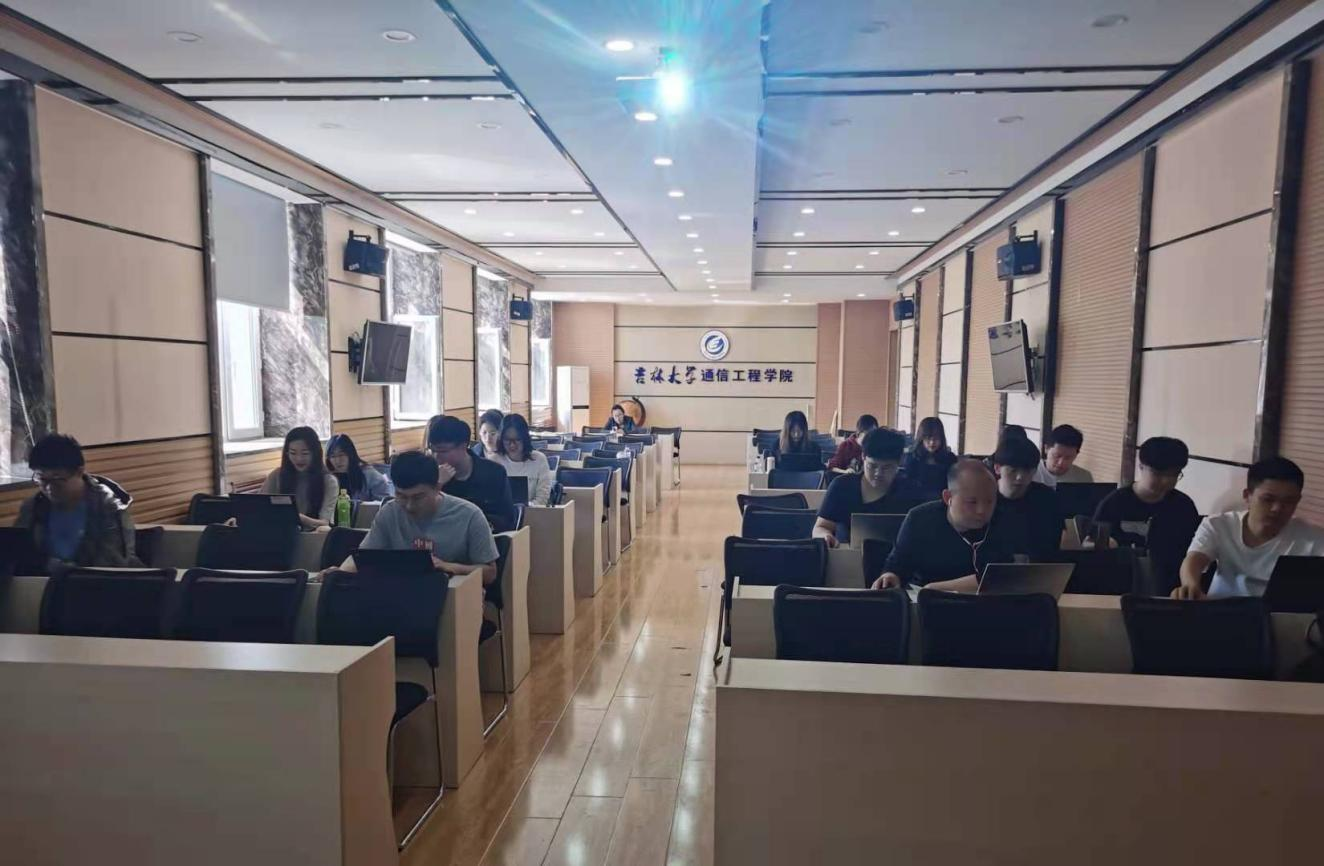On May 31, June 2, and June 4, 2021, Professor Zhu Han from the University of Houston in the U.S. gave a three-day series of webinars for the faculty and students at the College of Communications Engineering (CCE) Jilin University. The webinars were presided over by Professor Hu Fengye, and participated by nearly 150 CCE faculty members and students via both online and offline methods.
Themed on three topics, a series of reports were delivered by Professor Han, titled respectively “MetaSensing: Reconfigurable Intelligent Surface Assisted RF 3D Sensing Using Machine Learning”, “Secure Computation with Privacy Preservation for Cyber Physical System Applications”, and “Mean Field Game Tutorial and Examples”.
Firstly, Professor Han gave a brief introduction of 6G communications, and the basics and potential application of Reconfigurable Intelligent Surface (RIS) technology. He then spoke of the RIS-assisted radio-frequency sensing and location system, and cited three examples to highlight the unique functions of RIS. In-depth discussions were also made on the future directions of RIS development.
Later on, Professor Han introduced the Cyber Physical Systems (CPS). By combining security/privacy preservation with various cyber-physical models, he further explained the directions of interdisciplinary research. In particular, he gave a detailed explanation on the emergency demand response in data centers based on descending clock auction, ADMM in cost-aware equipment scheduling in smart homes, and differentially private optimization in the machine learning of physiological sensors. The discussions stressed the significance of security and privacy preservation for the establishment of a highly trusted and secure customer service system.
Finally, Professor Han elaborated on the basic framework and research approaches of mean field game theory, and cited multiple theories as example to present how they could be used to solve practical problems. He then summarized the discussions and pointed out the limitations and future directions of the existing studies.
The reports delivered by Professor Han on frontier wireless communications technology were warmly received both online and offline. Faculty and students were eager to ask questions and received patient answers from Professor Han. The series of webinars broadened students’ horizons on wireless communications and enlightened them greatly.


Bio: Zhu Han received the B.S. degree in electronic engineering from Tsinghua University, in 1997, and the M.S. and Ph.D. degrees in electrical engineering from the University of Maryland, College Park, in 1999 and 2003, respectively. From 2000 to 2002, he was an R&D Engineer of JDSU, Germantown, Maryland. From 2003 to 2006, he was a Research Associate at the University of Maryland. From 2006 to 2008, he was an assistant professor in Boise State University, Idaho. Currently, he is a John and Rebecca Moores Professor in Electrical and Computer Engineering Department as well as Computer Science Department at University of Houston, Texas. His research interests include security, wireless resource allocation and management, wireless communication and networking, game theory, and wireless multimedia. Dr. Han is an NSF CAREER award recipient 2010. Dr. Han has several IEEE conference best paper awards, and winner of 2011 IEEE Fred W. Ellersick Prize, 2015 EURASIP Best Paper Award for the Journal on Advances in Signal Processing and 2016 IEEE Leonard G. Abraham Prize in the field of Communication Systems (Best Paper Award for IEEE Journal on Selected Areas on Communications). Dr. Han is the winner 2021 IEEE Kiyo Tomiyasu Award. He has been IEEE fellow since 2014, AAAS fellow since 2020 and IEEE Distinguished Lecturer from 2015 to 2018. Dr. Han is 1% highly cited researcher according to Web of Science since 2017.